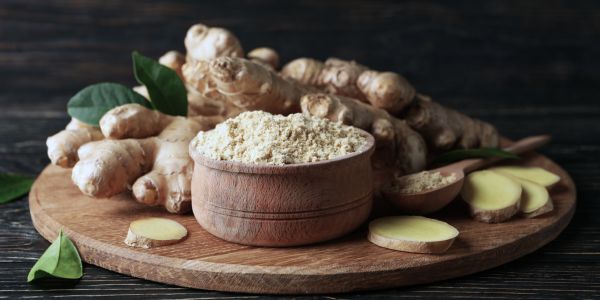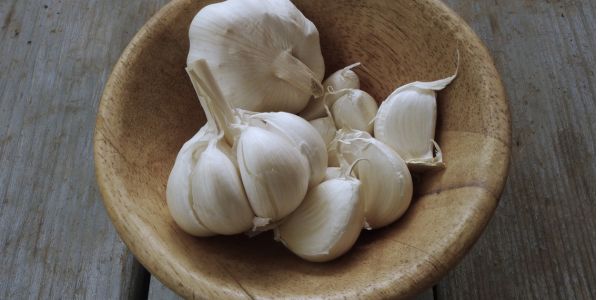5 Superfoods for Healthier Lungs

Introduction
In our quest for better health, we often overlook the profound impact our diet can have on our respiratory system. The foods we consume play a crucial role in maintaining and improving lung function, especially for those with unhealthy lungs. This comprehensive guide explores nine superfoods that can help you breathe easier and support overall lung health.
Our lungs work tirelessly, processing about 11,000 liters of air every day. By incorporating specific nutrient-rich foods into our diet, we can provide our lungs with the support they need to function optimally. From reducing inflammation to boosting antioxidant levels, these superfoods offer a natural approach to enhancing respiratory wellness.
Let’s dive into the world of lung-friendly nutrition and discover how simple dietary changes can lead to significant improvements in your breathing and overall lung health.
1. Salmons
The Anti-Inflammatory Ace
Salmon stands out as a nutritional powerhouse for lung health, primarily due to its rich omega-3 fatty acid content. These essential fats play a crucial role in reducing inflammation throughout the body, including the respiratory system.

How Omega-3s Benefit the Lungs
- Reduced Inflammation: Omega-3s help decrease airway inflammation, potentially easing symptoms of asthma and chronic obstructive pulmonary disease (COPD).
- Improved Lung Function: Studies suggest that regular consumption of omega-3-rich fish like salmon may be associated with better lung function.
- Enhanced Immune Response: Omega-3s support the immune system, helping to protect the lungs from infections.
Incorporating Salmon into Your Diet
To reap the lung-health benefits of salmon:
- Aim for 2-3 servings of fatty fish per week.
- Choose wild-caught salmon when possible for higher omega-3 content.
- Try various cooking methods: grilled, baked, or poached.
- Consider salmon salad as a healthy lunch option.
- Experiment with smoked salmon for breakfast or as a snack.
Remember, while salmon is an excellent source of omega-3s, other fatty fish like mackerel, sardines, and herring can also provide similar benefits for lung health.
Also Read: Avoid Ginger If You Have These 6 Health Problems
2. Blueberries
Nature’s Little Blue Defenders
Blueberries have earned their superfood status for good reason, especially when it comes to lung health. These small, potent berries are packed with antioxidants that can have a significant impact on respiratory wellness.

Blueberries’ Lung-Loving Properties
- High in Anthocyanins: These powerful antioxidants give blueberries their distinctive color and offer protective benefits for lung tissue.
- Rich in Vitamin C: This essential vitamin supports the immune system and helps maintain the health of lung cells.
- Contains Resveratrol: This compound has been linked to reduced lung inflammation and improved lung function.
The Science Behind Blueberries and Lung Health
Research has shown promising results regarding blueberries and respiratory function:
- Improved Lung Function: Studies suggest regular consumption of blueberries may be associated with a slower decline in lung function, particularly in smokers.
- Reduced Oxidative Stress: The antioxidants in blueberries help combat oxidative stress, which can damage lung tissue.
- Potential COPD Benefits: Some research indicates that the anti-inflammatory properties of blueberries may help manage COPD symptoms.
Adding More Blueberries to Your Diet
Incorporating blueberries into your daily routine can be both delicious and beneficial:
- Start your day with a blueberry smoothie.
- Add fresh or frozen blueberries to your morning cereal or oatmeal.
- Enjoy them as a snack on their own or mixed with nuts.
- Use blueberries as a topping for yogurt or salads.
- Try baking with blueberries for a healthy dessert option.
By making blueberries a regular part of your diet, you’re providing your lungs with a powerful antioxidant boost that can contribute to better respiratory health over time.
3. Turmeric
The Ancient Healer for Modern Lungs
Turmeric, a vibrant yellow spice that has been used in traditional medicine for centuries, is now recognized for its potential to support lung health. Its active compound, curcumin, is the key player in turmeric’s anti-inflammatory and antioxidant properties.

Turmeric’s Impact on Lung Health
- Potent Anti-Inflammatory: Curcumin helps reduce inflammation in the airways, potentially easing breathing difficulties.
- Antioxidant Properties: Turmeric combats oxidative stress, protecting lung tissue from damage.
- Immune System Support: The spice may enhance the body’s immune response, helping to fight respiratory infections.
Scientific Insights on Turmeric and Respiratory Health
Emerging research highlights turmeric’s potential benefits for lung health:
- COPD Management: Studies suggest curcumin may help reduce inflammation in COPD patients.
- Asthma Relief: Some research indicates that turmeric could help alleviate asthma symptoms by reducing airway inflammation.
- Lung Cancer Prevention: Preliminary studies show potential anti-cancer properties, though more research is needed.
Incorporating Turmeric into Your Diet
To harness the lung-supporting benefits of turmeric:
- Add turmeric to soups, stews, and curries.
- Try golden milk: a warm, comforting drink made with turmeric and milk.
- Sprinkle turmeric on roasted vegetables.
- Include it in smoothies for an antioxidant boost.
- Consider turmeric supplements, but consult with a healthcare provider first.
Enhancing Turmeric Absorption
To maximize the benefits of turmeric:
- Combine it with black pepper, which enhances curcumin absorption.
- Consume turmeric with healthy fats, as curcumin is fat-soluble.
- Use fresh turmeric root when possible for higher curcumin content.
By incorporating this golden spice into your diet, you’re providing your lungs with a powerful anti-inflammatory ally that can contribute to better respiratory health.
Latest Health Tips:
- 8 TOP Foods To Help Improve Your Eyes Naturally
- 4 Symptoms of Gallbladder Problems You Must Know
- 12 Common Warning Signs Of ADHD You Shouldn’t Ignore
- 11 Super Benefits of Eating Ginseng Every Day
- 10 Heart Healthy Foods After Age 50+ You Must Eat!
4. Ginger
A Breath of Fresh Air from Nature’s Pharmacy
Ginger, known for its distinct flavor and aroma, is more than just a culinary delight. This versatile root has been used for centuries in traditional medicine and is now gaining recognition for its potential benefits in supporting lung health.

Ginger’s Respiratory Benefits
- Anti-Inflammatory Properties: Ginger contains compounds that can help reduce inflammation in the airways.
- Bronchodilating Effects: Some studies suggest ginger may help relax the smooth muscles in the lungs, potentially easing breathing.
- Antioxidant Action: Ginger’s antioxidants help protect lung tissue from oxidative stress.
The Science Behind Ginger and Lung Health
Research is shedding light on ginger’s potential role in respiratory wellness:
- Asthma Management: Some studies indicate that ginger may help reduce airway inflammation and hyperresponsiveness in asthma patients.
- COPD Relief: Preliminary research suggests ginger could help improve lung function in people with COPD.
- Respiratory Infections: Ginger’s antimicrobial properties may help fight respiratory infections.
Adding Ginger to Your Diet
Incorporating ginger into your daily routine can be both tasty and beneficial:
- Brew fresh ginger tea by steeping sliced ginger in hot water.
- Add grated ginger to stir-fries, soups, and smoothies.
- Try pickled ginger as a condiment or palate cleanser.
- Use ginger in baking for a spicy-sweet flavor.
- Consider ginger supplements, but consult with a healthcare provider first.
Maximizing Ginger’s Benefits
To get the most out of ginger:
- Use fresh ginger root when possible for maximum potency.
- Combine ginger with other lung-friendly foods like turmeric and garlic.
- Consume ginger regularly for cumulative benefits.
By making ginger a regular part of your diet, you’re providing your lungs with a zesty boost that can contribute to better respiratory function and overall lung health.
5. Garlic
Nature’s Pungent Protector
Garlic, renowned for its distinctive flavor and aroma, is also a powerful ally in the quest for better lung health. Its active compound, allicin, is responsible for many of garlic’s health-promoting properties, including its potential benefits for respiratory wellness.

Garlic’s Lung-Loving Properties
- Anti-Inflammatory Effects: Allicin helps reduce inflammation in the airways.
- Antimicrobial Action: Garlic’s compounds may help fight respiratory infections.
- Antioxidant Power: Garlic contains antioxidants that protect lung tissue from oxidative damage.
Scientific Insights on Garlic and Respiratory Health
Research is uncovering garlic’s potential role in supporting lung function:
- Reduced Risk of Lung Cancer: Some studies suggest regular garlic consumption may be associated with a lower risk of certain types of lung cancer.
- COPD Management: Preliminary research indicates garlic may help reduce inflammation in COPD patients.
- Asthma Relief: Some studies show garlic extracts may help alleviate asthma symptoms.
Also Read: Seeds You Should Never Eat, What to Eat Instead
Incorporating Garlic into Your Diet
To harness garlic’s lung-supporting benefits:
- Add fresh garlic to soups, stews, and sauces.
- Roast whole garlic cloves for a milder, sweeter flavor.
- Try garlic in homemade salad dressings.
- Use garlic powder as a seasoning for various dishes.
- Consider garlic supplements, but consult with a healthcare provider first.
Maximizing Garlic’s Benefits
To get the most out of garlic:
- Crush or chop fresh garlic and let it sit for 10-15 minutes before cooking to enhance allicin formation.
- Consume raw garlic for maximum potency, if tolerable.
- Combine garlic with other lung-friendly foods like ginger and turmeric.
By making garlic a regular part of your diet, you’re providing your lungs with a pungent protector that can contribute to better respiratory health and overall lung function.
Conclusion
Maintaining lung health is essential for overall well-being, and the foods we eat play a significant role in supporting our respiratory system. By incorporating these nine superfoods—salmon, blueberries, turmeric, ginger, garlic—into your diet, you can enhance lung function, reduce inflammation, and bolster your body’s natural defenses.
Each of these superfoods offers unique benefits, from reducing oxidative stress and inflammation to improving immune function and protecting lung tissue. A balanced diet rich in these nutrient-dense foods can help you breathe easier and support long-term respiratory health.
Remember, while these superfoods can significantly contribute to lung health, they should be part of a holistic approach that includes regular physical activity, avoiding smoking, and maintaining a healthy lifestyle. Embrace these dietary changes, and you’ll be taking proactive steps towards better lung health and overall wellness.




